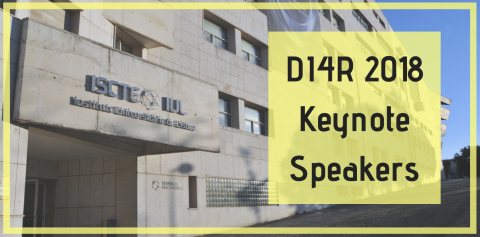The organisers invite all stakeholders including funding agencies, the research communities and the infrastructure providers, both public and private, to come together and share their insights, concerns, needs and vision for the future.
|
Challenges facing users and service providers Modern research requires novel digital services combining software, tools, data and computing across different institutions and across heterogeneous environments. This track focuses on the emerging needs of research collaborations, the requirements of added value thematic services and the computing needs of data-driven science. The track presents challenges and opportunities for both users and providers. Example topics:
|
Services enabling research This track focuses on services and frameworks needed to enable researchers to securely collaborate and share resources in a federated environment combining geographically distributed services from multiple providers and further the opportunities of Open Science. Submissions for this track should highlight benefits and challenges as seen by researchers when using existing frameworks or present ideas to address the future challenges. Example topics:
|
A changing environment, changing research The environment in which research is conducted, and digital infrastructures operate, is changing rapidly. Access and provisioning of services require clear governance, engagement rules, policies and funding models. Submissions should focus on the barriers, opportunities and changes in this environment in order to address the non-technical pressures, for example social, financial, legal and policy that influence the present and future opportunities. Example topics:
|
Working with data This track focuses on the requirements of data-driven science and the solutions for finding, accessing, integrating and reusing research data. Papers that highlight requirements and opportunities for a seamless usage of digital infrastructures for data management, storage and curation as well as for linking and publishing all forms of research objects like data, software, tools, pipelines and publications would be particularly topical Example topics:
|
Instructions for submission
The call for abstracts for full sessions, training and presentations, posters and lightning talks is now CLOSED.
All submissions should be on subjects relevant to the spirit and objectives of the conference: to present, discuss and learn about the challenges facing users and e-infrastructures, how they work together and their use in the research and education community. The topics described above are an indication of the scope of the conference, but are not meant to be restrictive.
Dates and deadlines
- 6th April – Digital Infrastructures for Research Call for Participation Announcement
- 1st May – On-line submission opens
3rd June10th June – Extended Deadline for submission (full sessions, single presentations, demonstrations, training sessions)- 27th June – Acceptance notifications
- 06th July 2016 - Registration Opens updated
- 05th July 2016 – Digital Infrastructures for Research Programme On-line updated
- 20th July - Deadline for submission (posters, lightning talks)
- 16th August 2016 - Early Bird Closes updated
- 14th September - On-line registration closes updated
- 28th – 30th September – Digital Infrastructures for Research 2016 in Krakow, Poland
|
Full sessions and single presentations |
|
Full session proposals (90 minutes) |
|
Training sessions and demonstrations |
|
Training Demonstrations |
|
Lightning talks |
|
Lightning talks (5 minutes) focus on one key point. This can be an idea, successful project, a cautionary story, collaboration invitation, quick tip or demonstration. This is an opportunity for ideas to get the attention they deserve.Lightning talk proposals must include: title, author name and short biography, five keywords, and a short description of the planned talk. Please indicate on your abstract whether you would be willing to have your proposal considered as a poster if it is not accepted as a lightning talk. |
|
Posters Deadline: 20 July 2016 |
|
(Poster authors are required to be available to discuss their posters during p.m. coffee breaks) |
|
Full papers |
|
Authors of abstracts selected to be presented at the conference, and all invited speakers, have the possibility to submit a full paper for review. Around twelve will be selected for online publication as conference proceedings. Please indicate on your abstract whether you are willing to prepare a full paper. |



